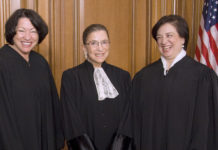Patrick F. Kennedy has been living off of a government salary with few breaks since 1973.
He is now the Undersecretary of Management for the Department of State. He served under Hillary Clinton and defended her lack of action in Benghazi.
Effective tomorrow, Kennedy will be retired . . . and still living off of the backs of taxpayers.
Patrick Kennedy is one of several government bureaucrats (the corporate media refers to them as “diplomats”) who reportedly chose to resign or retire rather than work for President Trump.
Many of those who are quitting with little notice are eligible for retirement.
Kennedy has been in government service for approximately 42 years and under the federal pension programs is apparently eligible to receive 1.1 percent of his highest average salary (over three years) for each year of service.
Assuming Kennedy is a GS-15 Step 10, that only qualifies for a standard government pension, he will be earning $73,000 a year in retirement . . . in addition to Social Security.
If he and other government workers in service since 1983 chose to stay in the previous government retirement plan (that did not require them to pay Social Security), they’ll receive even more.
Outside of government provided jobs, pension plans are increasingly rare for American workers.
For Patrick Kennedy and others who reportedly choose to quit over President Donald Trump, they’ll likely enjoy the benefits of their lengthy service until death.
For Kennedy, who is a well-kept 67 years old, has at least another 11 years left in him. That means taxpayers will fund at least $803,000 or his retirement (assuming no COLA increases kick in, which is unlikely).
For those looking to replicate Kennedy’s career and comfy retirement plan, for now, you’re out of luck as President Trump has placed a freeze on government hiring for the foreseeable future.





























